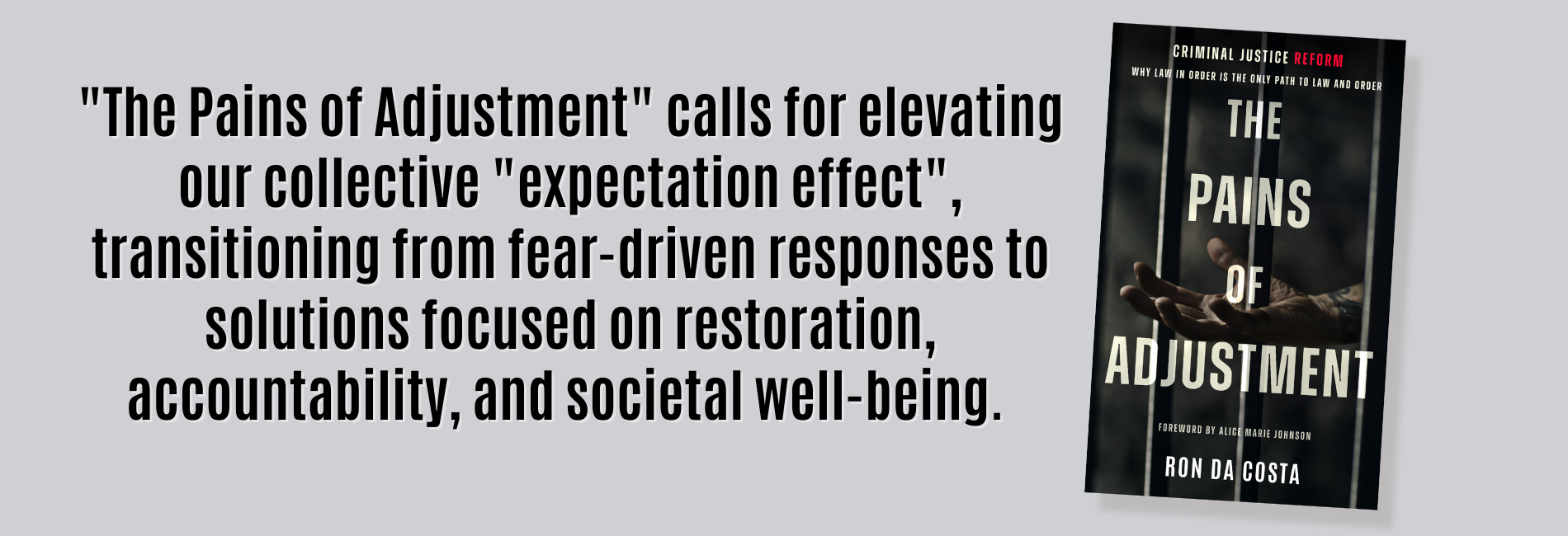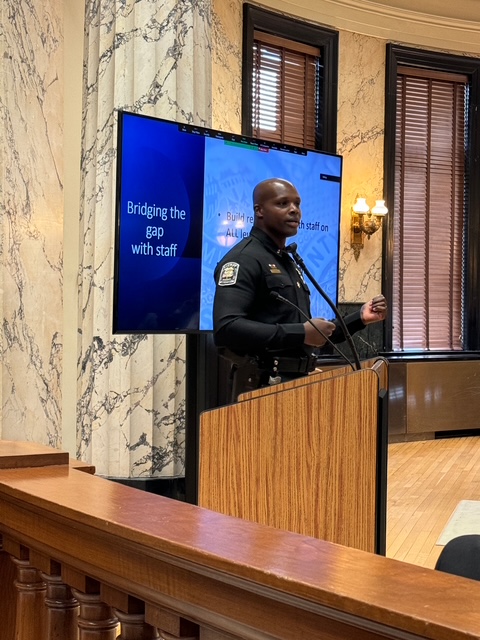
My book: The Pains of Adjustment highlights my dedication and commitment to reforming intervention strategies, punishment, and incarceration concepts, despite facing aversion from a country deeply rooted in tradition and scorns foreign ideas. My innovative approach reflects my belief that creativity knows no bounds. The sky became my limit, literally and figuratively.
Criminal justice reform is inevitable, yet society remains passive, often complacent, clinging to outdated notions of punishment and prisons. In “The Pains of Adjustment”, Ron Da Costa boldly challenges these perceptions, advocating not merely for reform, but for informed transformation of the criminal justice system.
Da Costa draws upon deep insights to urge readers to reconsider incarceration’s true purpose beyond emotional retaliation or societal disdain. He argues for a nuanced understanding of incarceration—prisons must evolve into environments that foster genuine behavioral change and rehabilitation, rather than reinforcing cycles of crime and recidivism.
Rooted in rigorous analysis and compelling real-world examples, this book reveals the critical need to humanize criminal justice reform by giving it an authentic face rather than a superficial façade. Da Costa emphasizes a strategic, thoughtful approach, shifting the conversation from reactive punishment to proactive improvement and genuine rehabilitation.
“The Pains of Adjustment” calls for elevating our collective “expectation effect”, transitioning from fear-driven responses to solutions focused on restoration, accountability, and societal well-being. Essential reading for policymakers, criminal justice professionals, and socially conscious readers, this book will reshape your understanding of prisons, justice, and their potential to create lasting positive change.
ABOUT THE FOREWORD: After some personal deliberation in 2023, Ms. Alice Marie Johnson became the critical writer of the foreword of this work.
A former justice-impacted person, she has dedicated her life since her release to advocating for those deserving of a second chance and their families.
The contrast between Ron Da Costa’s and Alice Marie Johnson’s prison experiences ignites meaningful discourse on proactive solutions for criminal justice reform. Alice, as fate would have it, became the first-ever appointed Pardon Czar in 2025. She says: “When I first began reading The Pains of Adjustment, I was taken aback and astounded by Ron Da Costa’s deep insights. I wondered, “How could a man who has never experienced life as a prisoner have such a profound understanding from a prisoner’s perspective?” … “I greatly urge you to keep an open mind to what you are about to read in this compelling book. Ron Da Costa has cracked the code of an unyielding criminal justice system, which has produced poor to no results. He is moving us from a mindset of the purpose of prisons to prisons with a purpose”.
“This work implores you to move the needle, not the goal post.”
This is rooted in the belief that sports and community projects can significantly influence Social Behavioral Competency Development (SBCD), too often through coincidental learning. However, their impact is amplified when the context is intentionally designed to achieve these specific development goals – a system creating an environment where young citizens are given the opportunity to independently explore their God given potential.
“One cannot throw a life on the scales of justice and wait for the pointer to stop.”

This is achieved through four measurable self-control factors: Complexity, Intensity, Duration, and Distractors. Keep in mind that teaching or training Self-Control is difficult because it is not satisfying. A reward is an outcome that satisfies your craving. This makes Self-Control ineffective because inhibiting our desires does not usually resolve or quench them. Resisting temptation does not satisfy your craving; it just ignores it. It creates space for craving to pass. Self-Control requires you to release a desire rather than satisfy it. This said: When applied clinically, sports and community projects can effectively foster social habits; without this intentional approach, progress remains wishful thinking. I argue that any context whether it be sports or community projects aimed at improving positive social habits can and should be tailored to achieve these community aspirations.

"Ron Da Costa masterfully dissects the core issues plaguing the criminal justice system. His insightful perspective pushes beyond traditional reform and into genuine, informed transformation. A must-read for anyone passionate about humane justice and true rehabilitation."
~ Lt. Antone Curtis
Desoto County Sheriff's Office
S.R.O. Division
S.W.A.T.Thought-provoking and Transformative!
When proposing change or reform in any way, shape or form, no matter how good the intentions, you will find or meet resistance, either covert or blatant.
2025 © Ron Da Costa | Designed by MK Website Designs